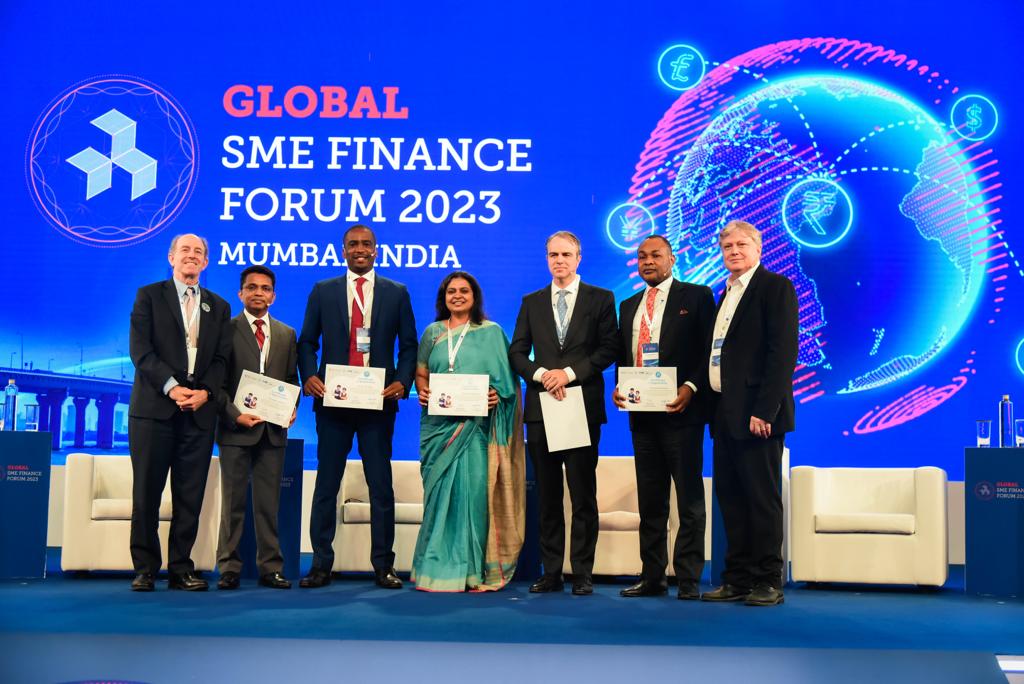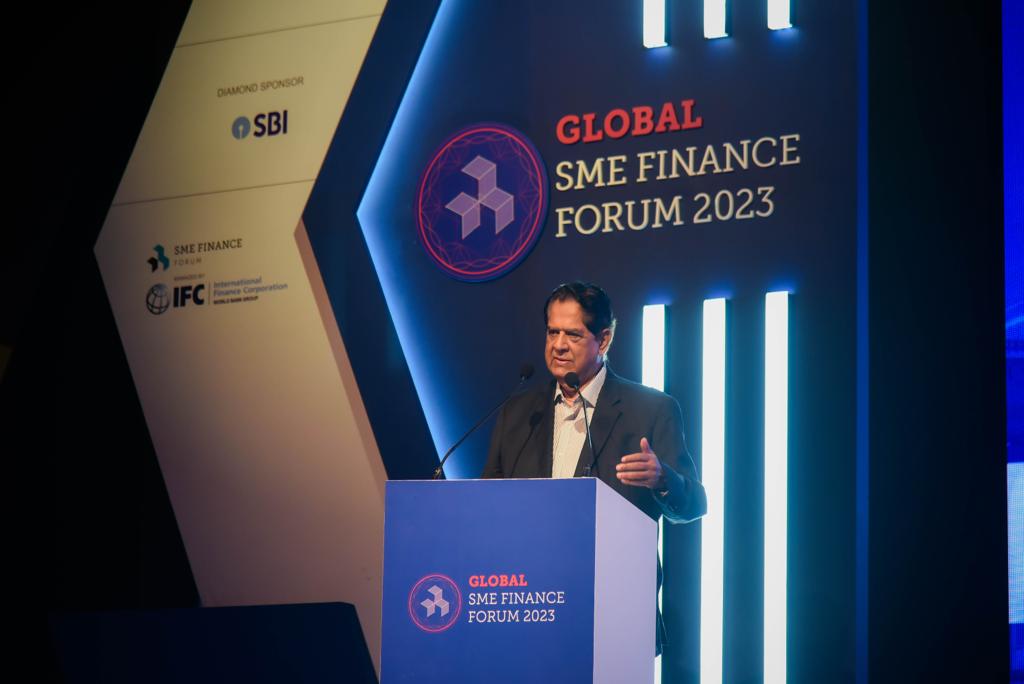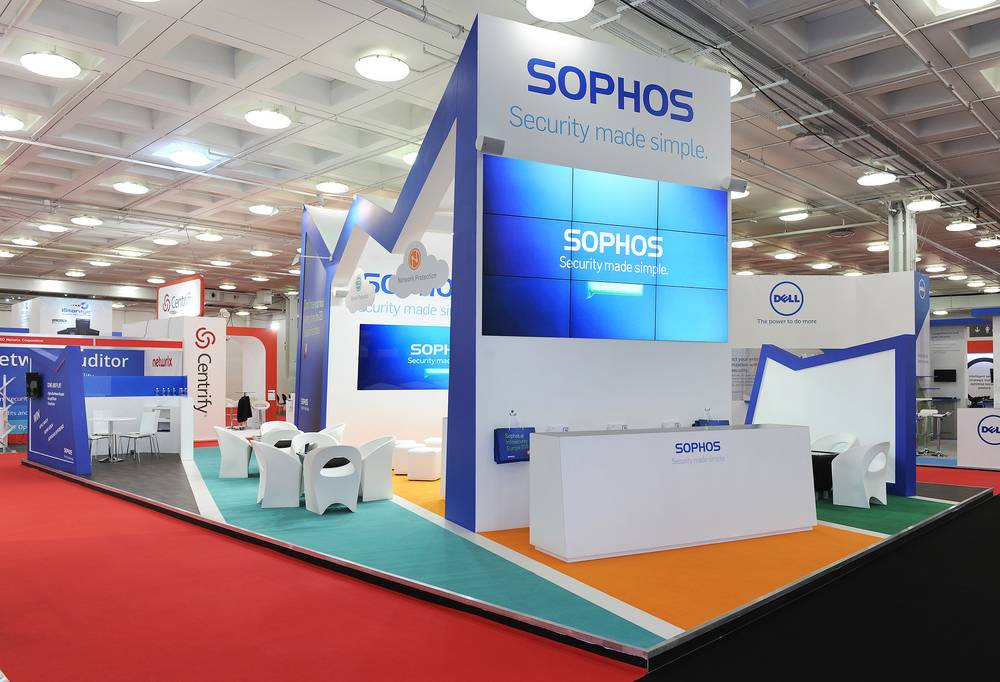Mumbai, NFAPost: NaBFID Chairman K V Kamath said thanks to groundbreaking technological disruptions, the Digital super cycle and MSME sector play a pivotal role in shaping India’s economic growth, as they are poised to contribute a substantial 20% to 25% of the GDP.
Speaking at the second day of Global SME Finance Forum 2023, NaBFID Chairman K V Kamath said with a demographic reach that transcends age groups and affordable connectivity that bridges urban-rural divides, India has effectively dematerialized and demonetized monetary transactions, turning businesses into virtual entities.
“This newfound agility, bolstered by the robust digital ecosystem, not only streamlines operations but also creates an abundance of employment opportunities, both directly and indirectly. It is this convergence of innovation and inclusivity that paves the way for a brighter economic future, where India’s digital and the MSME sector stand as pillars of progress and prosperity,” said NaBFID Chairman K V Kamath.
The ongoing Global SME Finance Forum 2023 witnessed a vibrant exchange of ideas during the second day of the conference with eminent personalities from the banking and finance world addressed emerging trends in SME financing in India and globally.
The conference began with an opening speech by Indian Banks’ Association Chairman A K Goel stating that World Bank report states that SME accounts for over 90% of the businesses and more than 50% of the employment worldwide.
“Formal MSME contributes to 40% of the national income in emerging economies. However, these numbers are significantly higher when informal MSME are included. It is estimated that around 600 million jobs will be needed by-2030 to absorb the global workforce, which makes MSME development a higher priority for many governments around the world,”said Indian Banks’ Association Chairman A K Goel.
He further added that through G20 presidency, India fosters collaborative solutions that not only benefit its population but also contribute to the global community, echoing the spirit of ‘Vasudev Kutumbh’—One Family.
“The theme of this year’s Global SME Finance Forum – ‘Digital ecosystem and the future of SME finance” – makes it compelling in this digital era. Since all sectors are undergoing digital transformation, entities must scrutinize their internal processes, embracing digitization to enhance operational efficiencies,” said Indian Banks’ Association Chairman A K Goel.
The experts from the following session focused on SME Financing: Vision 2030, addressing the pressing question of the SME finance gap, which currently stands at over US$ 5 trillion in developing countries every year.

Experts analysed how innovations in financial services, such as digital platforms, advanced data analytics, and market interoperability, are redefining the SME finance landscape.
The panelists also debated whether AI-driven banking can play a pivotal role in closing the SME finance gap. During this spirited debate, Axis Bank Deputy MD Rajiv Anand said in the future, an omni-channel experience will prove to be increasingly efficient for businesses.
“While digitalisation allows us to assess a person’s ability to pay, it falls short in gauging their willingness to pay. Therefore, the integration of both AI and human intervention is essential for gaining a holistic understanding of our customers,” said Axis Bank Deputy MD Rajiv Anand.
Over the past decade, Axis Bank Deputy MD Rajiv Anand said the bank witnessed significant growth in the retail sector within the banking industry. “However, it is anticipated that in the next decade, the focal point of growth will shift towards the MSME sector,” he said.
Further, during the panel discussion on Ecosystems and key crosscutting issues, SIDBI DMD Sudatta Mandal explained in India, out of 6.3 crore MSMEs only 1.5 crore MSMEs are registered. To receive credit and digital assistance, MSMEs need to have identification.
SIDBI is authorised by the Ministry of MSMEs to act as the implementing agency for executing the Udyam Assist Platform and bringing the informal segment into the formal segment. Once an enterprise is registered under Udyam, it will act like an Aadhaar (identity number) and provide identification through which they can avail of various government benefits.
Digitalisation is the catalyst that empowers India’s MSMEs to leap into the future, where innovation, efficiency, and global competitiveness converge.
In another panel session on Cross-border Payment Ecosystems, experts explored how emerging technologies and innovative business models could enhance transaction speed and lower costs for SMEs engaged in cross-border payments.
The discussion delved into the various initiatives undertaken by major payment networks on a global scale and the promising prospects of decentralized finance technologies and open banking for SMEs in the future.
Hosted by the Small Industries Development Bank of India (SIDBI) and the Indian Banks’ Association (IBA), this three-day conference brings together a diverse assembly of over 700 participants, including senior bankers, tech luminaries, and thought leaders from 70 countries and 250 institutions. Under the overarching theme, “Digital Ecosystems and the Future of SME Finance,” the event delved into pressing issues facing SMEs and the opportunities offered by digital ecosystems.





